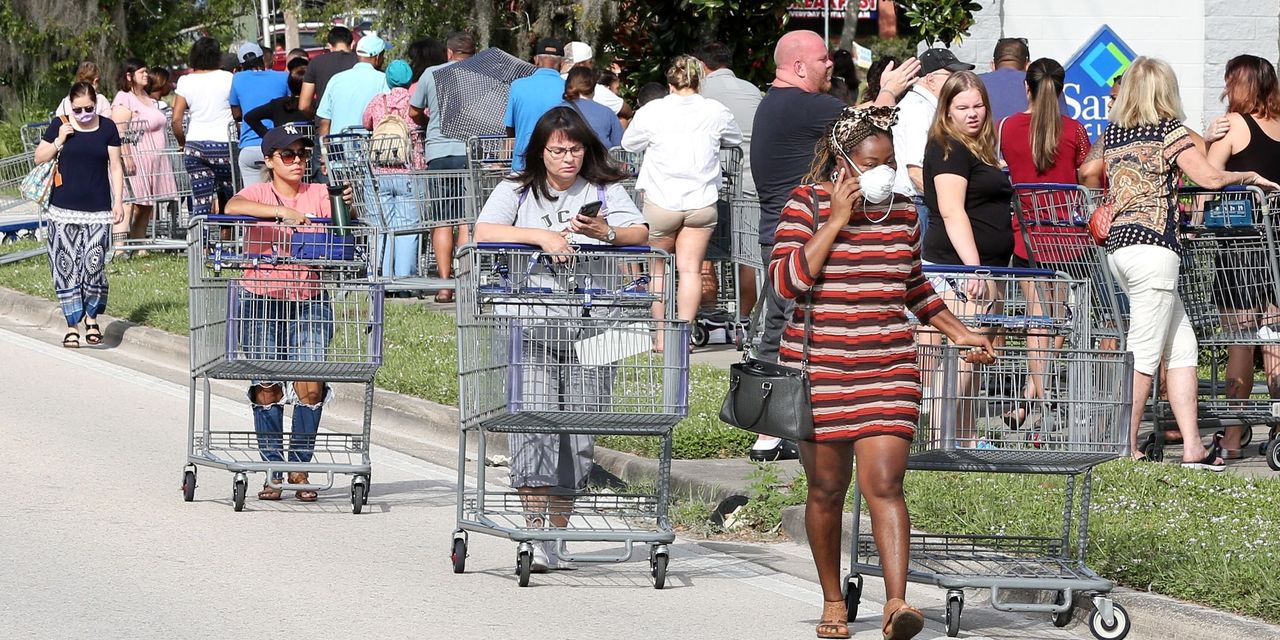The numbers: Sales at retailers fell flat in September, potentially another chink in the armor of a U.S. economy that likely to slow in the months ahead as interest rates keep going up.
Retail sales are a big part of consumer spending and offer clues on the strength of the economy.
One caveat: Retail sales tend to be soft in September because the month falls between the back-to-school shopping season and the end-of-the-year holidays.
In any case, Americans are still spending plenty of money, but it mostly reflects rising prices they have to pay because of high inflation. Adjusted for inflation, retail spending has basically been unchanged for the past year.
Retail sales were forecast to rise 0.3% in September, according to economists polled by The Wall Street Journal.
Receipts rose a mild 0.3% if auto dealers are excluded. Auto sales can exaggerate the ups and downs in overall retail spending.
Big picture: The U.S. economy — and retailers too — are facing stiff headwinds from rising interest rates. The Federal Reserve is jacking up rates to try to tame the highest inflation in 40 years.
Higher interest rates have already slammed the brakes on the real estate market by pushing mortgage rates above 7% for the first time in 16 years. And they are likely to dent sales of other big-ticket items such as new cars, appliances and the like.
If that keeps up, the U.S. economy could be teetering on the edge of recession by early next year, analysts say.
Key details: Auto and parts sales dropped 0.4% last month.
Receipts at gas stations also declined 1.4% after prices at the pump fell for the third month in a row. The cost of fuel is rising again, however, and Americans can expect to pay more in October.
Setting aside auto dealers and gas stations, retail sales posted a small increase last month. That gives a better picture of retail-sales trends.
One category economists watch closely is bars and restaurants, the only service-sector in the retail report. Restaurant sales rose 0.5% last month — above the inflation rate — in a sign that the economy still has some forward momentum.
Restaurant sales tend to rise when the economy is healthy and Americans feel secure in their jobs. Sales usually flatten out or decline in more troublesome times.
Looking ahead: “Consumers are spending more dollars, but they’re getting fewer items,” said chief economist Gregory Daco of EY Parthenon.
“Consumers overall have the money to spend more and the desire to spend it,” said corporate economist Robert Frick of Navy Federal Credit Union. “But inflation has made them cautious, particularly the rising prices of food and rent.”
So for now they’re spending prudently, shopping more at discounters and dialing back on some luxuries,” he added.
Market reaction: The Dow Jones Industrial Average
DJIA,
and S&P 500
SPX,
rose in Friday trades. Stocks soared on Thursday despite another report showing that U.S. inflation remained stubbornly high.
